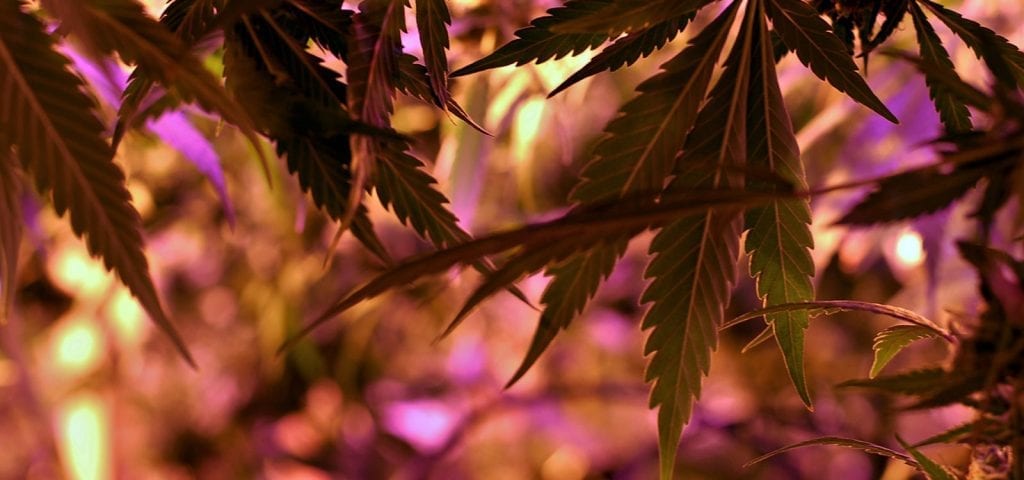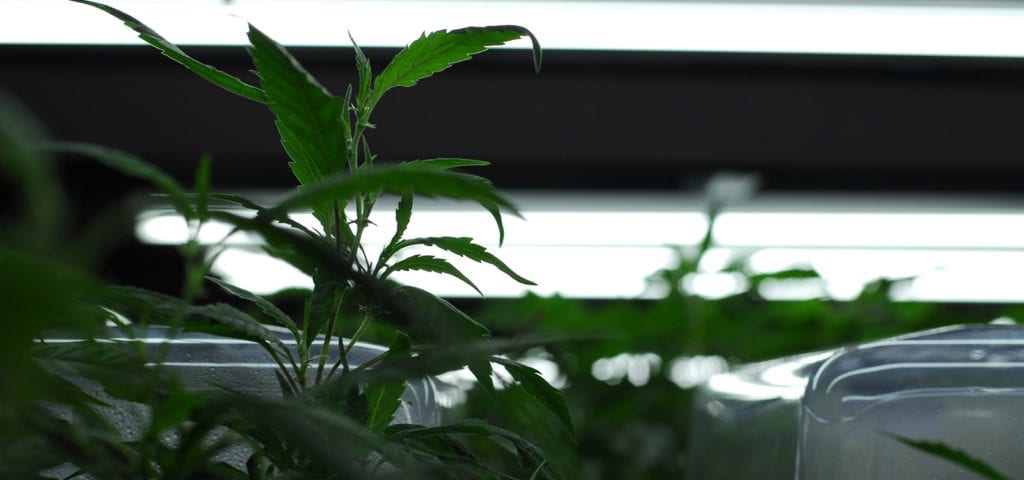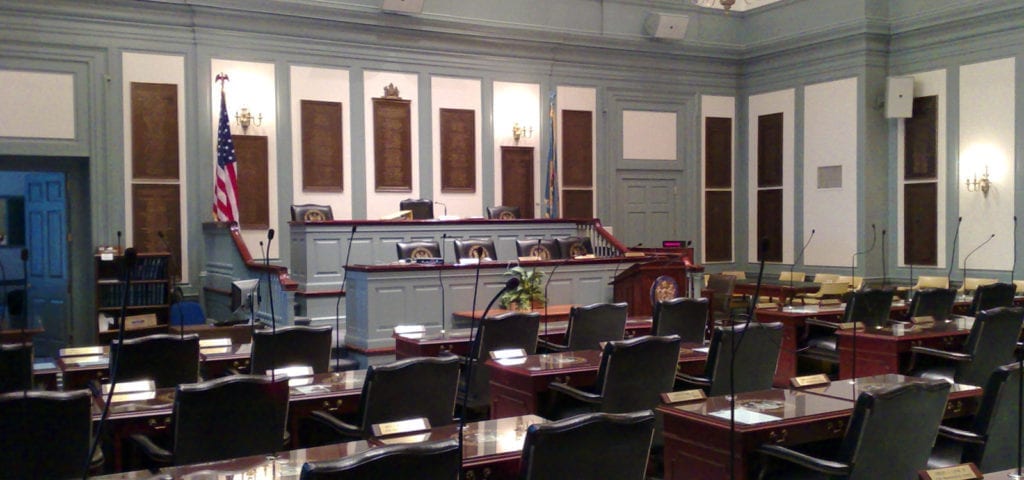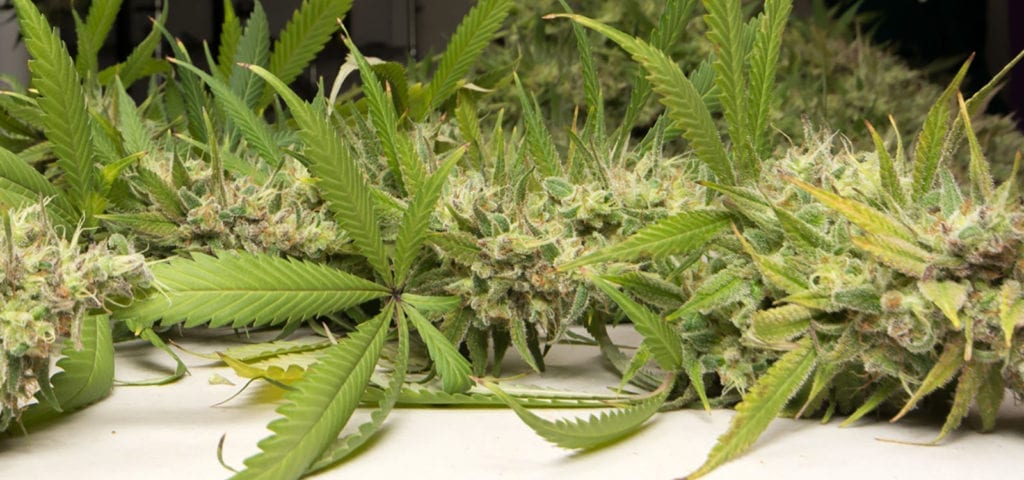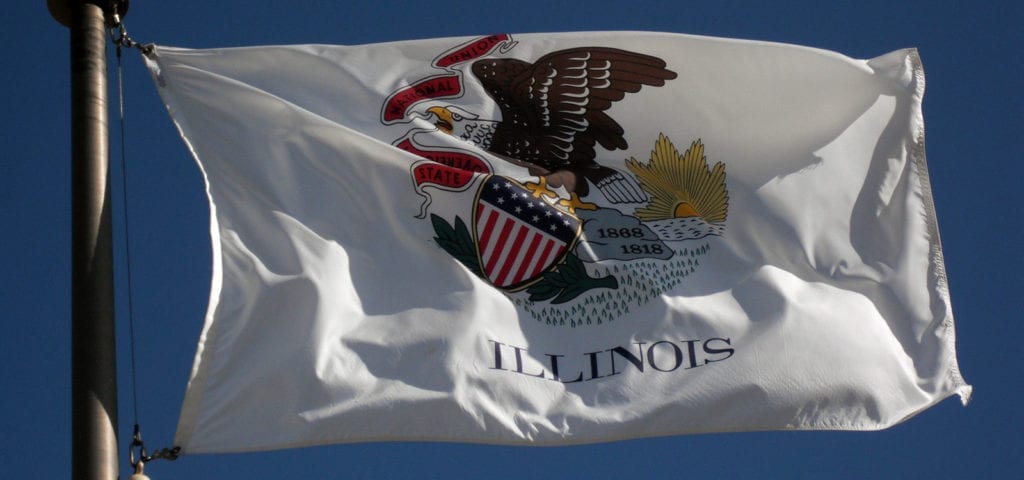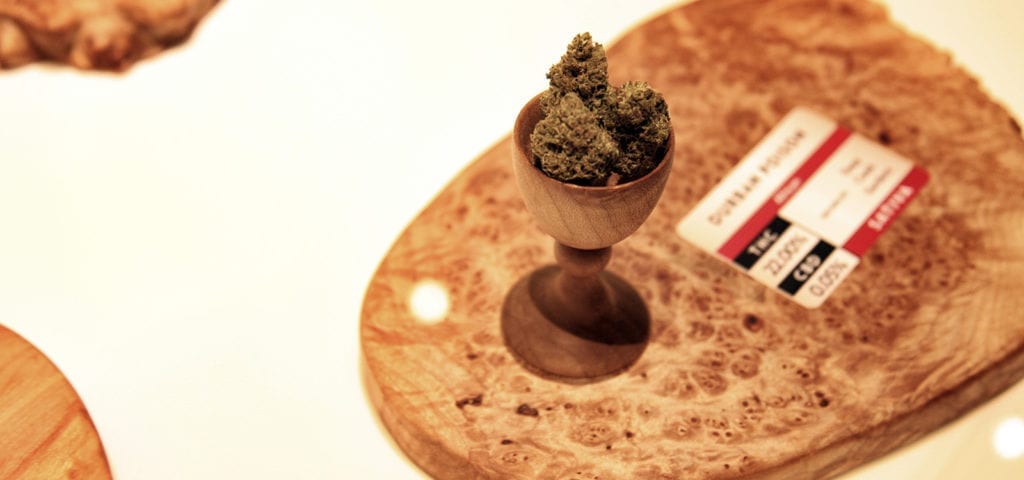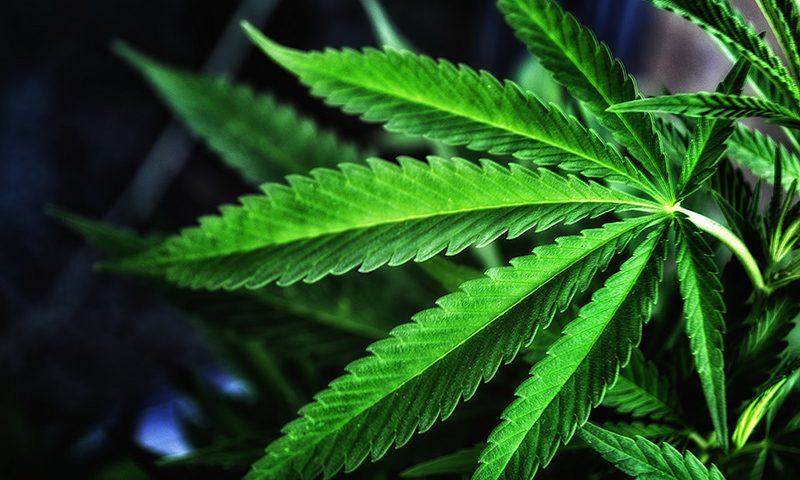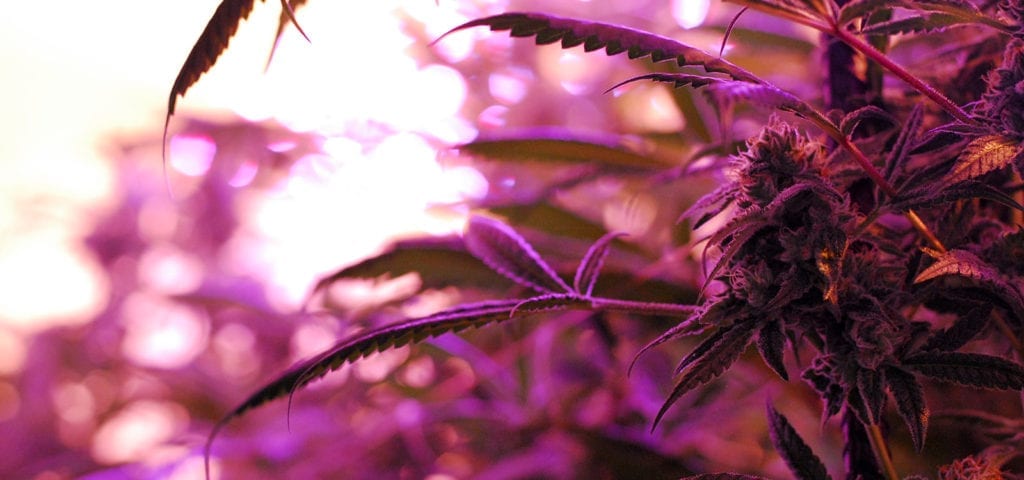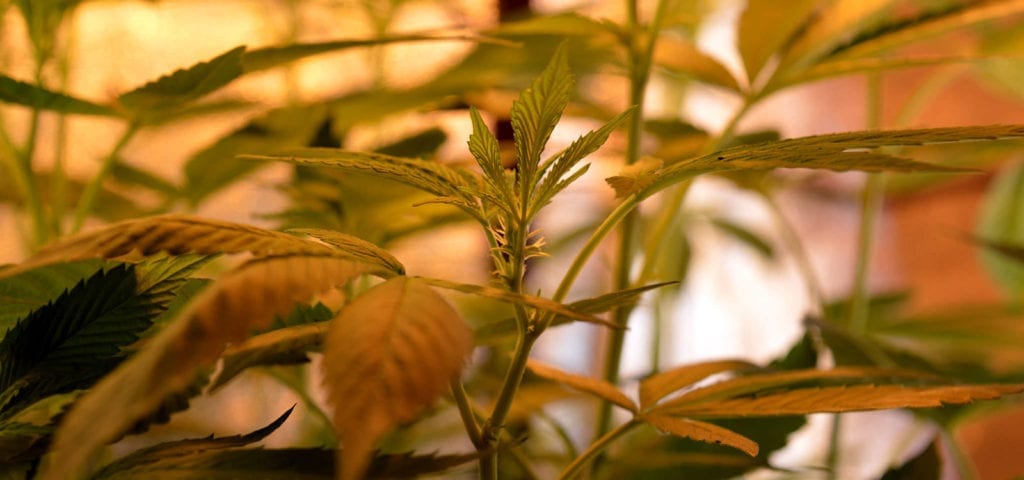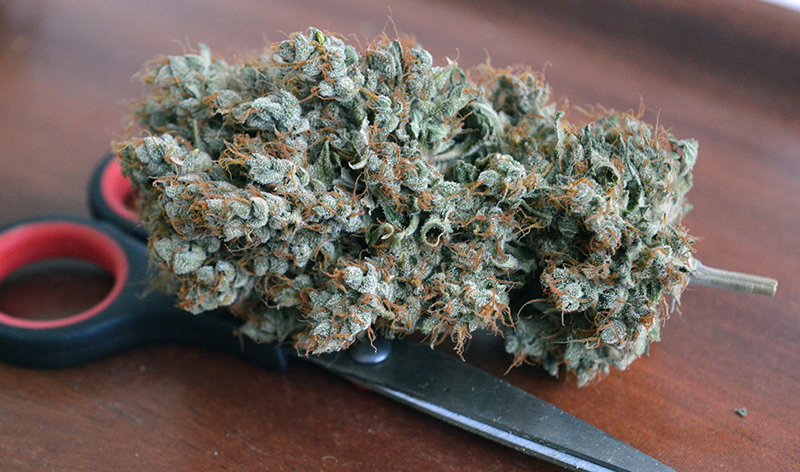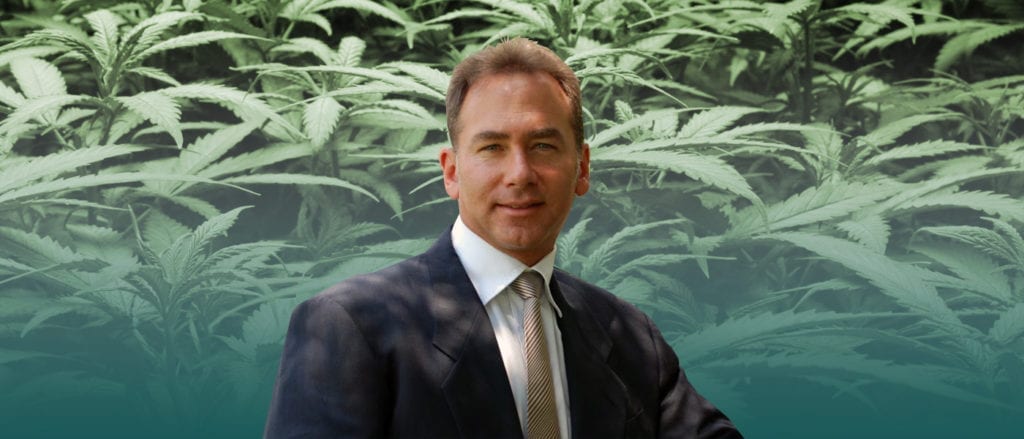David Barakett is the CEO of ShowGrow, a culture-focused dispensary chain with California locations in Los Angeles, Santa Ana, and Ramona. ShowGrow also runs a dispensary in Las Vegas, Nevada.
David recently joined our podcast host TG Branfalt for a chat about participating in the widening cannabis markets in California and Nevada. In this episode, David offers predictions for the new adult-use cannabis markets that will be opening after last November’s election, describes how he is able to make his dispensary brand stand out in the modern cannabis industry by understanding who cannabis consumers are and what they care about, and shares insight about his own management style, which he says can be summed up in one word: “positivity.”
Listen to the episode via the media player below, or continue scrolling to read a full transcript of the episode.
Subscribe to the Ganjapreneur podcast on iTunes, Stitcher, SoundCloud or Google Play.
Listen to the podcast:
Read the transcript:
TG Branfalt: Hey there. I’m TG Branfalt and you are listening to the Ganjapreneur.com podcast. The Ganjapreneur.com podcast gives us an opportunity to speak directly with entrepreneurs and experts who are working on the front lines of the industry to normalize cannabis through responsible business, education, and activism. As your host, I will do my best to try to bring you actionable information to help you plan, grow, and manage your cannabis business.
Today I’m joined by David Barakett. He’s the ShowGrow CEO. He’s got some dispensaries in Nevada and California. How are we doing today, David?
David Barakett: I’m doing great, doing great. How about you?
TG Branfalt: It’s a very strange day. Jeff Sessions was confirmed yesterday, so I’m still trying to wrap my head around that, and we might get to that a little bit later. But before we do, I want to talk about you. Let’s start with your background. What did you do before getting involved in the cannabis industry?
David Barakett: Early on, I got into real estate, that was kind of my first career, and built a mini real estate empire. It wasn’t very big but it was a Century 21 franchise. It was a good learning experience. That gave me the foundation for bringing some of the business acumen to the cannabis industry, and that was kind of my first taste of business and then I quickly moved into this shortly after.
TG Branfalt: Tell me about the experience opening your first dispensary. What was that like, and during that process, what were you looking for in partners and employees?
David Barakett: Yeah, it was crazy. It was a pretty interesting time and we actually partnered with somebody to manage this facility, and it was a great project at the time, and I was really excited. I didn’t know anything about the industry, really. I mean, I knew cannabis but not in the depths that you would have to know to be really great at retailing. We took over this facility and right out of the gate, we started doing pretty well. We kind of just developed it as we went and one of my partners did have some experience and he showed up a couple of days in and he was like, “You guys don’t have enough products on the shelves. What’s going on?” I was just like, “Man, I don’t know anything about this.” But from there, we just kind of learned.
I learned a lot early on from my employees because really they were the ones that were in tune with the industry. They are the boots on the ground and even today, that’s really where, that’s where we get our swagger from. That’s where all the knowledge is derived from, really, is from the folks that are in the store. A lot of those things we learned early on.
TG Branfalt: What state was your first dispensary in?
David Barakett: California.
TG Branfalt: How did you kind of evolve that business model and expand into Nevada? What did that entail? What’s that story?
David Barakett: When the Nevada market was going online, I think there was a lot of interest, right? The operators of the world descended on Nevada to find a home. We did the same thing. I started coming out here. If anything, it was just a good excuse to come to Vegas once a month. We met with a lot of people, talked to a lot of people about what we’re doing in California. We always felt like being from California, that we were better set up to succeed in Nevada. We kind of went through the process of meeting a lot of different owners, a lot of different personalities, and we landed on a group that are just really, really great guys, and they gave us the reins to do our thing.
We originally slow-played the market out here, and we didn’t end up doing cultivation and manufacturing because there just wasn’t a market to support it at the time. We built, we brought our California dispensary model. It was met with a lot of happy faces. People were coming in. They were like, “Man, it’s great to see a California dispensary.” In Nevada, a lot of people that live here are from California. A lot of people that they consume cannabis in Nevada, they’ve been to California. They’ve seen the shops. They’ve seen the product. There’s a lot of California influence out here. We just did our thing, put OGs on the board, put other California products that are just quintessential products that people would want, right? It just was a smooth transition.
TG Branfalt: With both of those markets opening up for recreational now, what are you guys doing to prepare for that and what is your kind of anticipation? What are you anticipating happening in both those states?
David Barakett: I anticipate these two states blowing up. I don’t think there’s any doubt that California is the largest market in the country. It’s poised to absolutely explode. I mean, we’ve had about a million patients in that market. What’s coming in California with rec, although it’s been relatively easy for people to get a rec and go to the shops, it’s still not something that everybody’s comfortable with. People think that you’re going to be on a registry somewhere. When you go to apply for a job sometime, somebody’s going to be able to dig out that you’re a cannabis consumer or whatever. Gun owners feel the same way.
There’s a lot of people that never entered the marketplace and there’s a lot more cannabis consumers out there that just aren’t in it. Yeah, my expectation is that the market could very well 10x. There’s no reason why it wouldn’t. We know that the million people that are cardholders now, they are your core business and they will be the core business after. You’re going to have always the people that are cannabis enthusiasts that will be your core business, and then there’s just going to open a market to a whole lot of people that will be occasional smokers, once a week or even once a month. But when you add up the numbers on that, you wind up with a pretty big market and the medicinal numbers should pale in comparison.
In Nevada, strategically, there’s no reason why we wouldn’t want to be here. We’re so close and this market, unlike California, it just, it doesn’t have the population, but when rec comes, the 42 million visitors a year could purchase. They’re flying into Las Vegas with the purpose of lowering inhibitions, so there’s no reason why this market isn’t going to just explode, too. My expectation is that these two markets will easily be the two largest in the country.
TG Branfalt: With the expansion happening, I mean, it’s happening all over the U.S. We’ve got eastern states now that are going full rec, so there’s a lot of opportunities to enter the market, but what are some of the barriers that you think exists as an entry to the market in the current business climate?
David Barakett: I mean, there’s a number of barriers to entry. It just, it depends how equipped you are to deal with them. We’ve built a business that’s comprised of people with a lot of different talents. Although we’re great at cannabis, we’re also great at business, and transitioning into this regulated market and every regulated market is different. It’s just, it’s imperative that you have somebody in-house that’s doing compliance. We happen to have somebody that’s phenomenal. It’s imperative that you understand the market that you’re getting into. Something that happened in Nevada was that nobody understood the market they were getting into. When locations were opening, there was 8,000 patients. That wasn’t going to support a bustling market. I still see a lot of that.
There’s this notion that you sell a gram of weed and your bank account automatically has a million dollars in it, and that’s just like so far from the truth. A lot of guys are jumping into the industry thinking that all you’ve got to do is get the license and open the doors, but it’s just not the case. There’s certainly some great markets out there that will be opening up. Massachusetts will be one of them. Everybody predicts that Florida will also be one of them. We’ll see how things kind of play out. But nevertheless, you’re talking about smaller states than where we’re working. They don’t have the same kind of tourism. When every prospectus that get sent to me is basically using black market numbers, it’s really hard to really understand what the value of these business are.
It’s experience. It’s just, it’s having done it that gives you the ability to really understand what you’re doing because, yeah, when you ask what are the barriers to entry, there’s a lot. There’s a lot. This is a heavily regulated space. Nobody is trying to legalize cannabis and have room for madness on their hands.
TG Branfalt: This is actually kind of leading into this quote that I’m going to read back to you that you had said, but before we do that, we’ve got to take a quick break. This is the Ganjapreneur.com podcast.
Commercial: This episode of the Ganjapreneur.com podcast is made possible by Name.com, a global provider of domain name, web hosting, and email services.
Every successful cannabis business needs an online presence, and every successful online presence begins with a domain. From your website to your email address, a good domain is easy for your customers to remember, it looks nice on a business card or billboard, and it reflects the true identity of the project it represents.
It’s important to reserve your domain early on when you are starting to your business, as you may find that the dot-com address for your preferred brand or concept has already been taken. If somebody has already purchased the ideal dot-com for your business, they might be willing to sell it, but if they aren’t, you may have to get creative with one of the new alternate domain extensions such as dot-co, dot-club, dot-shop, or even dot-farm. Reserve your domain name today at name.com/ganjapreneur.
If you are a domain name investor or venture capital firm interested in acquiring or advertising premium cannabis domains, go to the Ganjapreneur domain market to browse a wide variety of names including strains.com, cannabismedia.com, mj.com, and countless others. Discover branding opportunities for your next startup and learn about listing your premium domain names for sale at ganjapreneur.com/domains, sponsored by Name.com.
TG Branfalt: Hey, we’re back. This is the Ganjapreneur.com podcast. I’m TG Branfalt, your host. I’m here with David Barakett, the ShowGrow CEO. Before we took the break, we were talking about barriers to entry, the current market. You’ve said that legalization and regulation don’t create a market. They simply allow it to exist. Now, it’s my opinion that cannabis regulations are too onerous. They don’t actually allow for free markets. It’s often unbalanced and stuff. It says to regulate tobacco or cannabis like alcohol. There’s a bill to regulate it like tobacco in New Jersey that’s probably going to get killed.
For me, when I read that quote, that’s what I think, is that there’s too many regulations and it’s not regulated like alcohol is, whatsoever. Is that what people should take away from that quote or did you mean something entirely different?
David Barakett: Well, I could lie to you and tell you that I meant a whole lot of things, but what you’re saying I think is, I think there’s a lot of truth to it. To a degree, yes, I’m alluding to that, but what really I’m saying is just pretty simplistic. When a new territory goes online, and they are all the time, everybody goes bananas, and it’s like they just think that it’s guaranteed success and that’s not the case. There’s a lot of contributing factors and one of which is exactly what you just said. I mean, the fact that they can be over-regulated and overtaxed, those are reasons why that’s not really a great market.
Although we’re legalizing and we have a framework that’s going in place, there’s still a lot of crazy things that are going on out there. To a degree, I think there’s some really good regulators that are trying to figure it out so that they don’t tax us out of the markets. Forget about taxing outside of the market. The fact is is that creates, that doesn’t create the black market. It will let the black market continue to exist and thrive. Yeah, so simply putting an ordinance together isn’t a key component to a successful cannabis market.
What I meant by that, really, I mean, is that there’s more to evaluating markets viability than the mere fact that it’s been legalized in a town near you. There’s a lot of excitement over cannabis and it’s created this mentality that success is given, and that couldn’t be further from the truth. Every day I speak with investors looking to jump in. I try to get people to understand that this is a very serious, highly competitive industry, and it’s not to be just taken lightly.
That’s in essence what the quote means, but I do agree that we’re operating in an imperfect regulatory model that can be very difficult to navigate, and that’s due to the grassroots nature of this movement. Laws were typically enacted at the highest level and the framework is then passed down to smaller governments for them just to follow the rules in place, but due to the unwillingness to reverse prohibition, the onus has been put on local city councils and the city attorneys to enact complex marijuana law.
Like I said earlier, the fear of legalizing cannabis and winding up with reefer madness in your hometown is not something that a lot of them want, so they do regulate it heavily because they don’t want to be the city and they don’t want to be the people that cause something bad to happen in their town, so it’s understandable. We’ve also seen voter-backed initiatives that pass and leave everyone a little bit confused about how to operate or the city on how to regulate because they haven’t really been properly vetted to the degree that most laws would be.
TG Branfalt: It’s not something that regulators are used to dealing with until it’s implemented. I mean, in much of the same way that I’ve spoken to a lot of operators who say it’s really hard to find good people because you don’t have a whole lot of people with experience in the cannabis industry.
David Barakett: Yeah, that’s right. I mean, you don’t. You need to train people. A lot of times, the people with the experience, unless it’s somebody that’s really honed their craft, it’s not always the best choice. But for us, we like to train people. Cannabis knowledge is not a prerequisite. In fact, it’s sometimes, obviously, it’s different for every job. We have all kinds of different jobs in this industry and in our business, and of course if you’re getting a higher level job, then to get cultivation, you have to know about it and you have to be good at it.
But if you’re coming into a dispensary to get a job at ShowGrow, all you’ve got to do is have some personality and have some charisma, and that’s all it boils down to for us. I can teach you about cannabis but I can’t teach charisma. I can’t teach somebody how to smile and chat with people and make lifetime patients out of them. That’s something that a lot of people, they just inherently have.
TG Branfalt: Well, and you come from not the cannabis industry. You come from real estate. What other, with your employees and the people you work with, where else do you see them coming from?
David Barakett: Well, to be perfectly honest, I give a lot of people their first jobs (laughs). A lot of times, the food and beverage industry. It’s one of those things. Everybody kind of has their first jobs, and that’s why, looking at people’s resumes for positions like that is of very little importance to me, going through resumes to find out that you’ve had your first job at a fast food restaurant or on a golf course, wherever. It doesn’t matter really what it’s specific to because it’s not something that is going to have given you all the skills you need to be successful in cannabis.
On the retail side, it really just, it starts with personality. It’s all about personality. It’s all about, it’s how you connect with patients and how comfortable you make people. The cannabis knowledge comes. We build a culture in ShowGrow that is such that it’s a point of pride to know everything about cannabis. I don’t have to teach it in-depth because they want to learn it. They want to be good at their jobs. They want to be able to provide that best service because the girls and guys that work there are competitive with each other, and that’s always been a point of pride in our company and we’ve always really encouraged that.
TG Branfalt: What’s your management style like? You’re a CEO. How closely do you work as far as the day-to-day operations go?
David Barakett: I built the retail side to a large degree with a manager that managed all our facilities, and my partners, and I got out of it for sometime while I was really doing the branding, and actually just recently I got back into it. It’s been a lot of fun. The reason I got back into it was kind of because I missed it. It’s a grind but at the same time I have a lot of people now surrounding me. I have a lot of support. Although it is kind of all-consuming, it’s really like, it’s a really enjoyable experience to work with so many young people and to really see them enjoy what they do.
My management experience or my management style is basically positivity. In a nutshell, if I could use one word, it’s positivity. This is all about culture. Cannabis is all culture, and cannabis consumers are savvy. They’re cool, and they want that to be reflected in the stores they go to. What we’re building here is just this culture where everybody loves coming to work every day. I want you to love coming to work every day.
We have three major focuses and none of them have to do with making money. The first thing and the utmost importance is patients first. We are a customer service driven business. We are all about customer service. We want to give the best customer service. I want those value adds to separate us. That’s what I want people to say about us when they come into our facilities for the first time.
The second thing we do is employees. It’s all about the employees. We take care of the employees. We want them to love where they work. We also want the employees to take care of the employees. We want them to just build those relationships and enjoy themselves. When that happens, what I said earlier about not having to train them on cannabis, you don’t because when they love where they work, they learn it because they want to be there and they know that to be here, you have to, you’ve got to know your job. You’ve got to know your stuff. You’ve got to be good at it because your shift leads have you and your managers have them. They all know all their stuff. That’s the culture that I like to create so that everybody can kind of look around and see that everybody is working together. Everybody loves what they do and everybody thinks cannabis is great, and it should be. I mean, could you imagine working at a cannabis shop and hating what you do? That’s pretty sad. That’s really helped us separate ourselves from the pack.
Then the last thing we do is community. We do community outreach. We want to be a part of every community we’re in. We don’t do it to drive sales. We do it help familiarize people that would typically be familiar with cannabis. We want them to see what we’re all about and who we are, and we’re not bad guys. A lot of the bud tenders go and volunteer or they meet people that are from different charities that we’re working with. We’re changing minds and people see that and they’re like, “Wow, you guys are good people. Imagine that.” Those are our focuses. That’s what we focus on. That’s my management style. I try to really dig deep with all of our employees and give everybody the benefit and chance to succeed, and I have groomed a lot of young employees and I’ve given a lot of young people opportunity where they wouldn’t get it anywhere else, and I know they wouldn’t.
We have managers as young as 24 years old managing facilities that, these are extremely valuable assets that are being managed by young kids, but that’s what, they want it. They want it and they have what it takes to be successful in cannabis now. Does that mean we don’t give them the support system that they need on the back end to succeed? Yeah, of course we do. But on the front lines, boots on the ground, I want all these young kids to succeed and I want them to be a part of it, and I want them to buy in because we’re, this isn’t a company for me. It’s a company for everybody that works for us. They see the growth and they see the opportunity. The upward mobility in our business is massive, and they could see it.
In a lot of jobs in this day and age, you can’t see your opportunities. You can’t see where your job today that’s making you 12 bucks an hour can lead in a few short years if you just grind it out and work hard, keep your head down and in fact actually really like what you do instead of working on an assembly line or doing something but not this that seems to be not what kids today want to be doing anyway, I guess. But, yeah, so that’s it. We’re just trying to give people opportunities and be a part of the community and to take care of our patients.
TG Branfalt: I want to stay on this theme of culture and community, but before we do that, we’ve got to take our last break. I’m TG Branfalt. This is the Ganjapreneur.com podcast.
Commercial: At Ganjapreneur, we have heard from dozens of cannabis business owners who have encountered the issue of canna-bias, which is when a mainstream business, whether a landlord, bank, or some other provider of vital business services refuses to do business with them simply because of their association with cannabis. We have even heard stories of businesses being unable to provide health and life insurance for their employees because the insurance providers were too afraid to work with them.
We believe that this fear is totally unreasonable and that cannabis business owners deserve access to the same services and resources that other businesses are afforded, that they should be able to hire consultation to help them follow the letter of the law in their business endeavors and that they should be able to provide employee benefits without needing to compromise on the quality of coverage they can offer.
This is why we created the Ganjapreneur.com business service directory, a resource for cannabis professionals to find and connect with service providers who are cannabis-friendly and who are actively seeking cannabis industry clients. If you are considering hiring a business consultant, lawyer, accountant, web designer, or any other ancillary service for your business, go to ganjapreneur.com/businesses to browse hundreds of agencies, firms, and organizations who support cannabis legalization and who want to help you grow your business. With so many options to choose from in each service category, you will be able to browse company profiles and do research on multiple companies in advance so you can find the provider who is the best fit for your particular need.
Our business service directory is intended to be a useful and well-maintained resource which is why we individually vet each listing that is submitted. If you are a business service provider who wants to work with cannabis clients, you may be a good fit for our service directory. Go to ganjapreneur.com/businesses to create your profile and start connecting with cannabis entrepreneurs today.
TG Branfalt: Hey, welcome back to Ganjapreneur.com podcast. I’m your host, TG Branfalt. I’m here with David Barakett, ShowGrow CEO. Before the break, we were talking about culture, and inevitably, well-funded big business is going to enter the space which a lot of grassroots people who were the fore founder, the founders of everything that exists now, so there’s a lot of fear about well-funded big business getting involved, and many states such as New York and Minnesota, they’re already there operating the medical programs there. What’s your take on this as an operator and how are smaller operators preparing for this inevitability?
David Barakett: Yeah, that’s something that I’ve given a lot of thought to, and I do get asked that question. I’m a pretty firm believer that the cannabis industry is not going to go the way of big business overnight, one, and I don’t really see it going to this kind of generic cannabis mass-produced, widely available model where your kind of boutique product and your craft product, if you will, ceases to exist.
I mean, I don’t know a cannabis consumer that isn’t like super into what it is they’re consuming. If cannabis is just something that kind of falls flat, it’s not that exciting, and I think like in part, consuming cannabis isn’t just about getting high. Even if you’re talking about medicinal, recreational, whatever, whoever it is, if you are, especially if you’re a recreational consumer and a habitual consumer, it’s the ritual. So much of it is the ritual, and it’s your peace. I mean, shit, 420, I mean, it’s just like it is what it is. I just don’t see that type of consumer.
Cannabis consumers are a very, very savvy consumer. That is something that is lost on a lot of people that are not from this space that don’t understand this space. They think that they’re just going to mass produce a bunch of weed and they’re going to thrown on the shelves, and weed is weed, right? It couldn’t be further from the truth. It’s a surefire way to not get anybody to come back.
TG Branfalt: You’ve said a couple of times that cannabis consumers are this real savvy consumer. Why do you think that this is?
David Barakett: Well, I think that kind of falls in to what we were just talking about. It’s that it’s something that they care about. It’s a ritual. It’s an interest. It’s a hobby. Cannabis, it makes people more conscientious. I think that, I don’t think that we need any real in-depth studies to find out that the consumers of cannabis are by and large a more caring people, a more thoughtful people. I think that the stoner stigma that’s associated with cannabis is in part true, but the same is true for everybody that consumes cannabis. Not everybody that is a stoner, stigmatized consumer, is going to not be the same as everybody in a sense that you’re going to have your professionals that consume, and you’re going to have your elderly folks that consume.
The one common thread here is not that they’re all kind of, that they’re straight off half-baked. It’s that they’re kind of just a lot more thoughtful and giving. I think that a lot of that comes with cannabis. When people ask me about the rec market, “Well, medicinal has value, and we know that so we should legalize medicinal, but rec, there’s no good in that. Why should we legalize rec?” I think that that’s so short-sighted because a world where cannabis is available to everybody all the time is going to be a better place. I can guarantee that.
TG Branfalt: You’ve got people too that are self-medicating and they’ve been doing it for years. I’ve said on this podcast several times, I use low dose cannabis products for my anxiety, and had these been available to me when I was much younger, I sometimes wonder, maybe I would have done a little better in college. Maybe I would have done this a little differently or done that a little differently. I think that, in my opinion, medical is great. I mean, all the pro, when I hear Governor LePage out in Maine saying, “Oh, well, we’ve got to get rid of medical marijuana now that we’re going to have a recreational market,” that’s absurd. That’s an absurd thing to me. But at the same time, you do have some people who don’t meet the state criteria who are using it for anxiety, using low doses. To your point that there is more to recreational than people who just want to go get stoned.
David Barakett: Oh, yeah. I mean, yeah, definitely, definitely. It’s a well-documented fact that cannabis abuse in youth, in the undeveloped brain, can cause harm. That’s something that has been studied and documented and proven because it can slow brain development. But there is zero negative impact that has been proven for adult use. I think the social benefits of it are just massive, especially if you’re comparing it to what the risks are because the risks are nil. It could only better, right? I mean, you’re not causing harm.
Of course, people have to be responsible. There’s no doubt that there’s a responsibility component to it, but that’s something that comes with the territory, too. I think that also, and this isn’t true for everyone but I see cannabis consumers that are responsible, and I think that has something to do with being thoughtful and kind of, and being more caring and all that kind of stuff that comes with getting high actually.
TG Branfalt: We’re running a bit long here, but I do want to get your opinion as an owner, as an operator, on the Trump administration and specifically the opinions of Jeff Sessions as they relate to cannabis. Are you guys worried?
David Barakett: I just, I try not to focus on the things I can’t control. I do everything that is inside of my control. The fact of the matter is, is that this is a very big business. It’s not going away. I don’t think that really it’s something that they’re going to spend their bandwidth on doing. It would be an incredibly unpopular thing to do. Typically, when public support is on the side of cannabis, that’s where it’ll ultimately land. I know in this day and age, people are questioning whether majorities matter, but in this particular case, I don’t know if this is necessarily on the forefront and at the top of the list of things they want to get to.
TG Branfalt: For you, the sky is not falling.
David Barakett: No, man. The sky is never falling. It’s all good. It’s all good. I know a lot of people are freaking out. Cool, they freak out, but for us, I’m just going to keep my head down and just keep working and doing the right thing. I’d be nervous too if I thought I was not doing the right thing. But I can open up the doors to my business any time and show anybody what it is we do and how we do it. If you could take a look at what we do at ShowGrow, we are proud of what we do. The reason that we built a model like that and the reason we do that is because we are breaking down barriers, we are changing minds.
I’ve been doing that as long as I’ve been in this industry and I’ve seen the most vehemently opposed change their minds when they come to our facilities because how could you hate this? It’s not doing anything to harm you and all of these young kids that are working here, they’re not monsters. We have beautiful, well-built out, well-lit, secure facilities. We pay our taxes. We participate in the community. We give back a lot.
Those are the things I can control. I can’t control anything else, so I guess I just, I don’t want to waste time worrying about stuff that I can’t control. I want to worry about just building a great business, and we’ll see. This isn’t the first time there’s been adversity in this industry.
TG Branfalt: It was built on adversity.
David Barakett: Exactly.
TG Branfalt: My final question is, what advice do you have for entrepreneurs looking to enter the cannabis space?
David Barakett: I guess what I would say is that you’ve got to work hard. It’s just like there is nothing given in this industry. It is all hard work. It’s unrelenting perseverance because you are going to get kicked, not once, probably two or three times. It is unrelenting. You will get knocked down. In cannabis, you get knocked down even in the best of situations, and that’s not to say that, that’s not like an ultra-negative thing, don’t get into the industry. It’s just that, again, I go back to this thing. We are breaking down barriers. We are changing minds. There are still a lot of foolish people that don’t want to believe their eyes when they see a product that cures people and they still rally against us.
That, to me, is really, that’s the biggest component to it. Now, honestly, that’s kind of the fun part too, though. You’ve got to understand that we’re educating people on a plant that’s truly amazing, and that’s rewarding, that’s rewarding for everybody that’s involved. The other bit of advice I would give people is if you’re getting in for monetary gain, and that’s your only motivation to enter, I’d tell you that don’t bother because if you’re not a true believer in what this plant can do, you have very little chance of succeeding right now.
It’s inevitable that at some point this industry will become such that it’s like every other industry, and like you said earlier, there will be that kind of mass-produced corporate weed that’s commoditized and fluctuates with the markets, and then there will be an opportunity if money is your only goal. But there’s more than enough to go around in this industry. If you’re really, if you’re touching people’s lives with cannabis and you’re affecting real social change in the community, to me, it’s inevitable that that leads to a great deal of success. That’s success, that’s happiness, and that’s in your business life and that’s in your personal life. Cannabis is great (laughs).
TG Branfalt: Well, I really want to thank you for coming on our show today. It’s rare that we get an opportunity to really speak to somebody who is in a management position, CEO of a dispensary. I talk to a lot of policy people and people of that nature, so this is, for me, this is one of the first conversations that I’ve been able to have on this show to cover the sort of topics that we discussed, so thank you so much for appearing on our show. Would you like to just tell everyone how they can find out more about your dispensaries, where they’re located, before we go?
David Barakett: Yeah, absolutely. You can just go to ShowGrow.com. We’ve got a location in downtown L.A., off San Pedro and the 10, or the 10 and San Pedro, I should say. We’re in Santa Ana. We’re on Saint Gertrude Street. You’ll find us on Weed Maps for all our locations. Go to ShowGrow.com, you can check out the shops and pictures to kind of see what we’re all about. Then we’re down in Ramona. Ramona is a San Diego county, just a cool little spot out in the countryside. It’s really awesome. We’re going with the small town, and it’s got a small town vibe, and all of the bud tenders that work there, they know everybody in town, everyone knows them, and it’s a trip, but it’s really cool. We’ve become a part of that community to a degree and everybody is loving it. That’s a cool project. Then Vegas. We’re up near the Summerlin area off of the 215 and Tropicana.
We aim to be the top customer service brand, the top value-added brand. We don’t want people to come into our stores to simply get the rock bottom basement product and price and then mass quantities. We’re an experience. We’re a store that when people come to us, we want them to think like, “Oh, cool. This is my kind of vibe. This is my kind of spot.” You get excited about coming back to see the girls and everybody knows you by name. That’s what we’re about. That’s how we built our business and that’s how we’ve enjoyed our success. Yeah, we’re just going to keep rocking. We have a number of new locations coming too, so stay tuned. We’ve got seven coming in 2017.
TG Branfalt: That’s exciting news. We’ll be in touch when they start rolling the map, but thanks again for joining us on today’s episode.
David Barakett: All right. Thank you very much.
TG Branfalt: You can find more episodes of the Ganjapreneur.com podcast in the podcast section of Ganjapreneur.com and the Apple iTunes Store. On the Ganjapreneur.com website, you will find the latest cannabis news and cannabis jobs updated daily along with transcripts of this podcast. You can also download the Ganjapreneur.com app in iTunes and Google Play. This episode was engineered by Jeremy Sebastiano. I’ve been your host, TG Branfalt.

